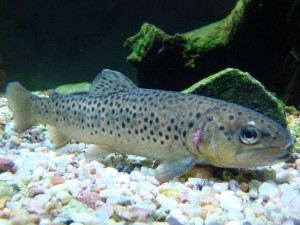
The research group discovered that the behavioral traits examined were individually repeatable, i.e., fish showed personality. Furthermore, certain behaviors related to stress tolerance, such as freezing, showed statistical heritability at a level of 14 percent. This means that non-random mortality related to stress tolerance both in fish farms and in the wild can modify the heritable traits of fish populations and thus lead to changes that are difficult to reverse. At worst, these changes might weaken the ability of fish to avoid predators and decrease the fisheries’ catches unless mitigated by acknowledging the potential selection acting on fish personality.
The article is currently in Behavioral Ecology and Sociobiology. Read the full article.

